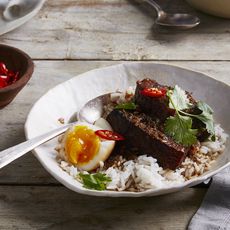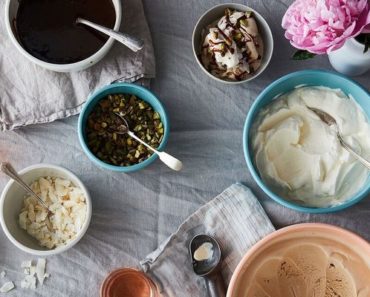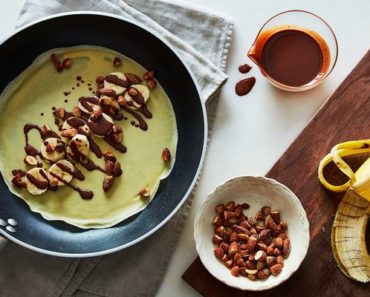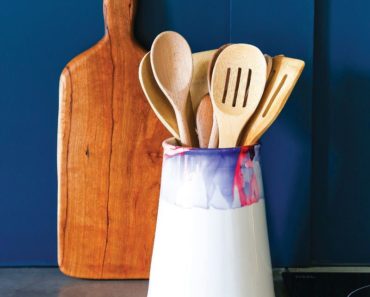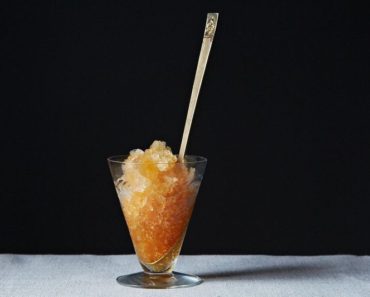My parents and I moved to New York City from Sydney when I was five, leaving behind about 20 close family members. Moving so far away from them was a trying transition, so when we returned to Sydney every December, we made the most of it; in other words, much of our visits were spent eating and cooking large meals together. I have countless memories of these family reunions: racing through the backyard while nibbling on a fatty Korean short rib from the grill, being handed crunchy pieces of nashi pear cut by my aunt, and going to the Sydney Fish Market to eat oysters for breakfast.
Australia’s national cuisine is greatly influenced by its close proximity to Southeast Asia and the many people that immigrate from there. Some of the best Malaysian, Vietnamese, and Thai meals I’ve had have been in Sydney. The “downside” of this exposure to such a variety of different cuisines, as well as the anglicized Australian ones, was that it made it difficult for my family to decide what to cook together. And then we met pork belly braised in coconut water, a Vietnamese dish, and cooked it again and again.
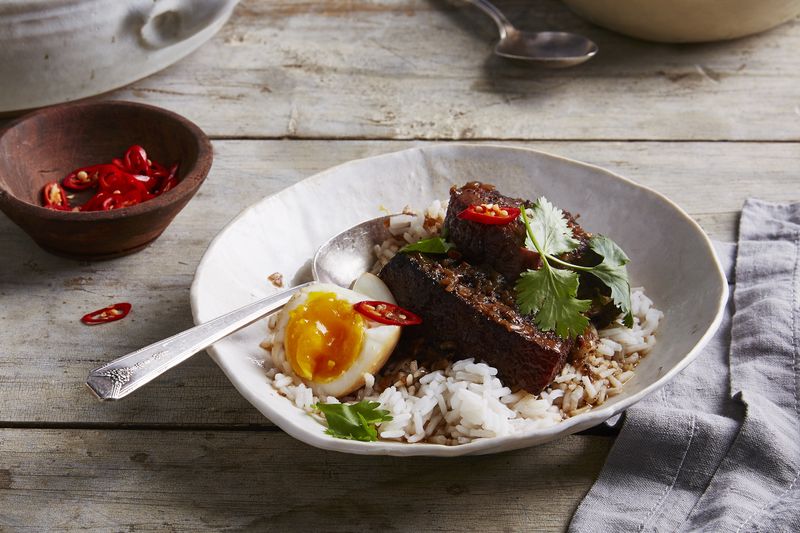
Photo by Bobbi Lin
I feel like pho and bánh mì are often the only dishes that come to mind when someone mentions Vietnamese cuisine, and I wish more people knew about this pork belly dish. Called thit kho tàu, it is a delicious and popular home-cooked meal, perfect for special occasions like Vietnamese Lunar New Year. The fattiness of the pork belly, caramelization from the sugar in the marinade, and the coconut water makes this dish taste very luxurious. Besides marinating the pork overnight, there aren’t too many steps beside waiting for the dish to braise, so it’s a stress-free dish to have on the stove amidst the usual holiday madness of a large dinner party. The cooked dish also benefits from sitting overnight, so if you are particularly pressed for time, you can simply reheat it right before serving.
My rendition differs slightly from the traditional recipe, as I don’t add a caramel sauce; I think the braising liquid has enough depth and richness with the overnight marinade alone. I also add the eggs to the braising liquid only 15 minutes before the dish is finished (many recipes instruct you to let them simmer together for at least an hour); this way they aren’t super hard-boiled, and the yolks remain slightly creamy. When choosing the pork belly, I look for a piece with a good equal ratio of fat to meat (you don’t want it to be too fatty). The spice mixture for the marinade is essentially a Chinese five-spice recipe, so you can always increase the amount of ingredients and save the rest for a later use. The strong flavors of this dish are best balanced with some crunchy, refreshing side dishes, like pickled cucumbers or radishes.
Coconut Water–Braised Pork Belly (Thit Kho Tàu)
By Imogen Kwok
Chinese Five-Spice Powder
-
3
star anise -
2
cinnamon sticks -
1
teaspoon Szechuan peppercorns -
1
teaspoon cloves -
1
teaspoon fennel seeds
Braised Pork Belly
-
2.5
pounds pork belly, skin on and boneless -
2
tablespoons palm sugar or light brown sugar -
2
tablespoons fish sauce -
2
tablespoons light soy sauce -
1
tablespoon dark soy sauce -
1
tablespoon canola oil -
4
shallots, peeled and finely minced -
3
garlic cloves, peeled and grated using a microplane -
4
cups coconut water, unsweetened -
8
eggs -
Jasmine rice, cooked (to serve)
-
Cilantro (to serve)
-
3-4
red chillies, thinly sliced (to serve)
(via Food52)

